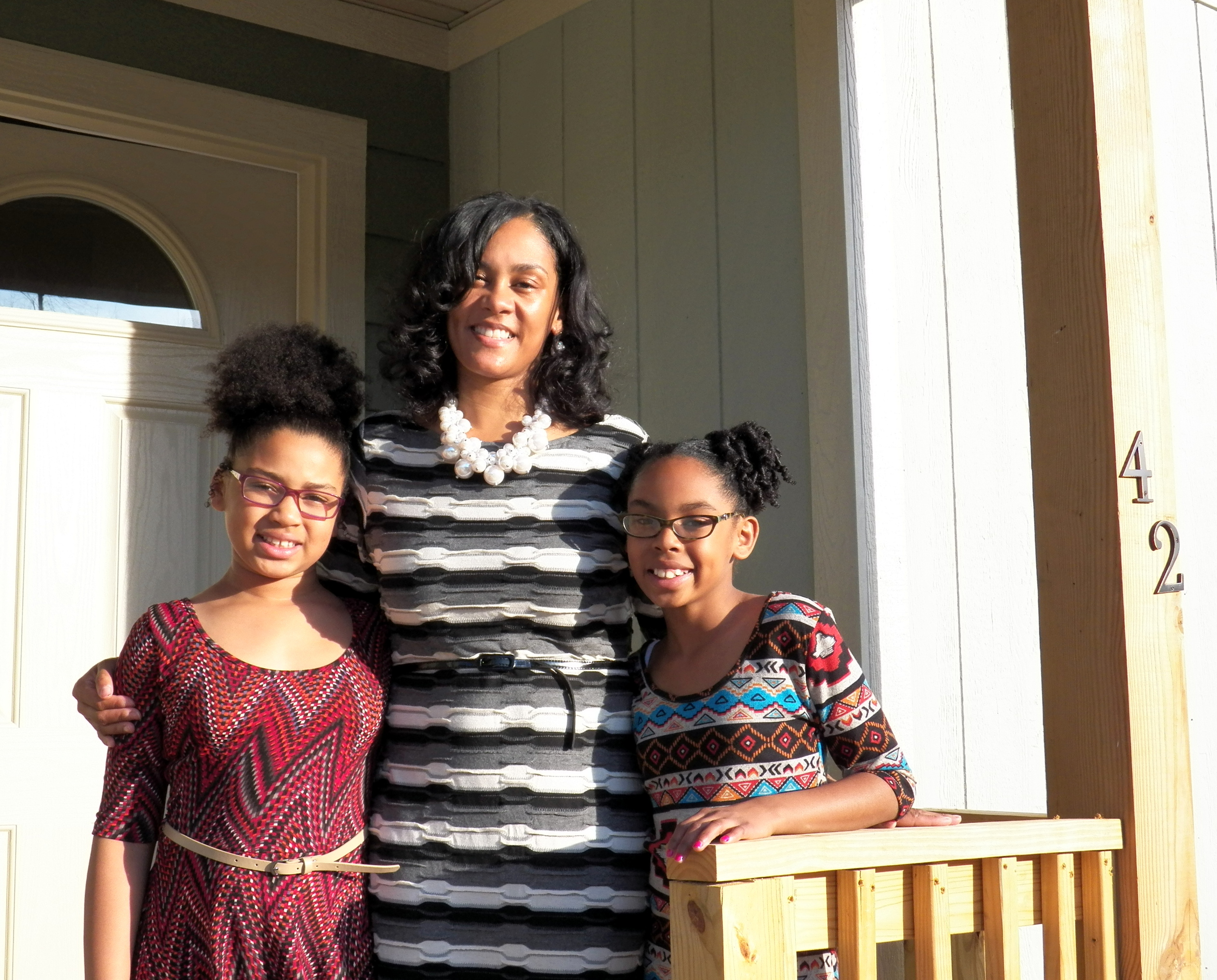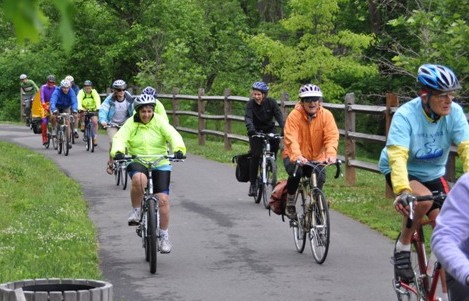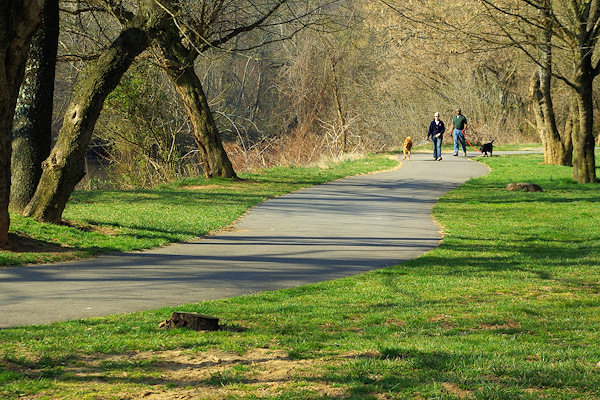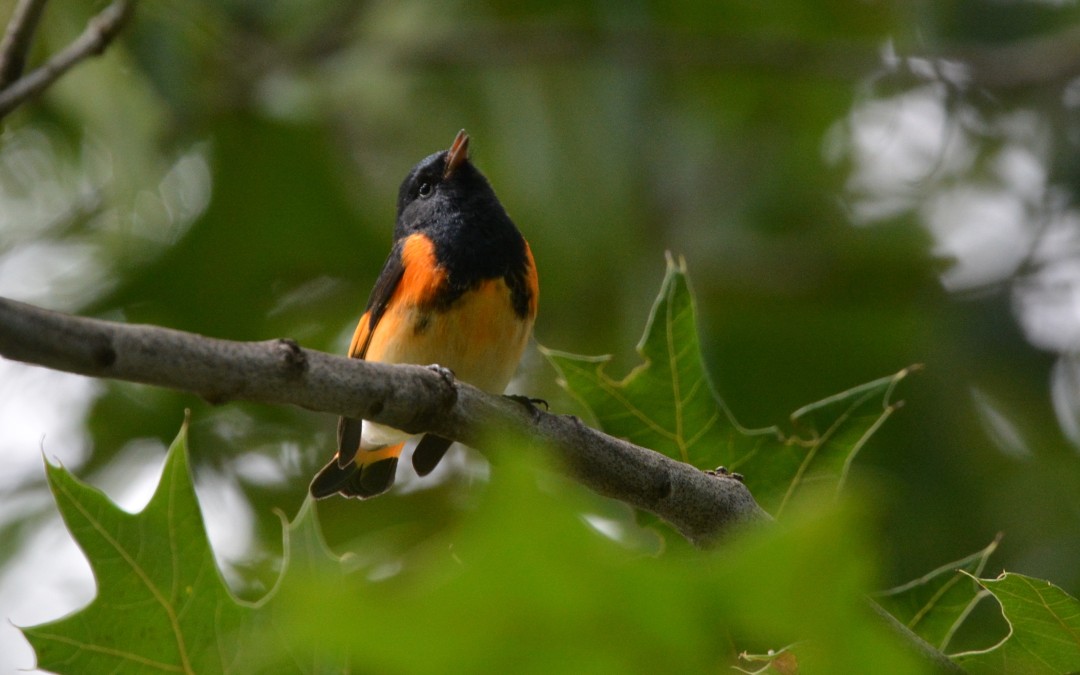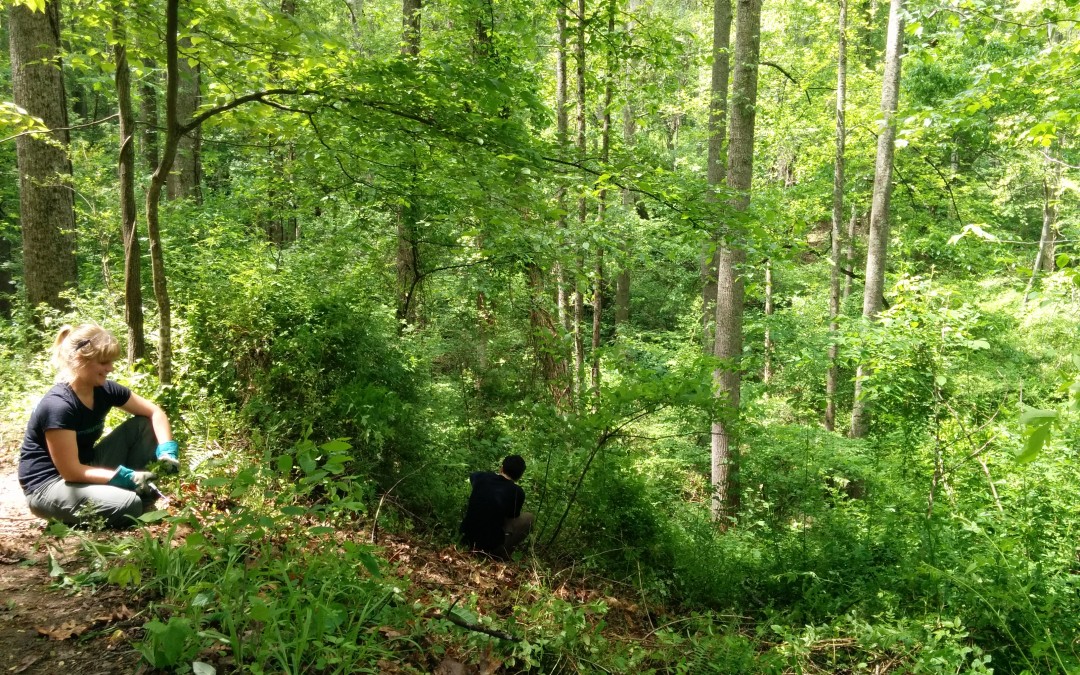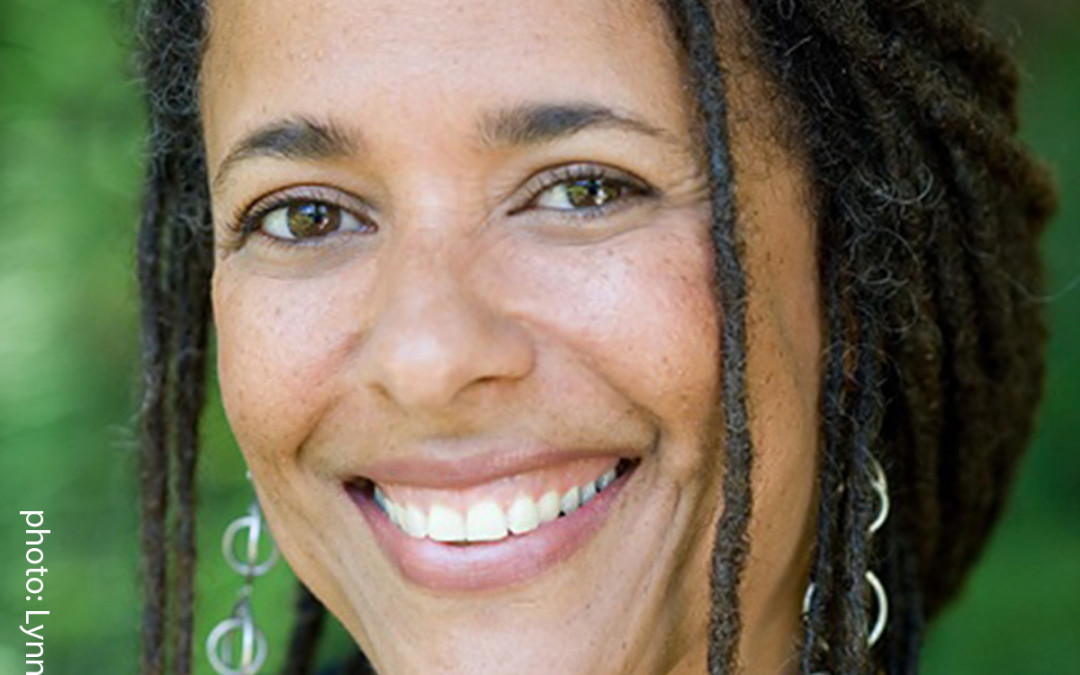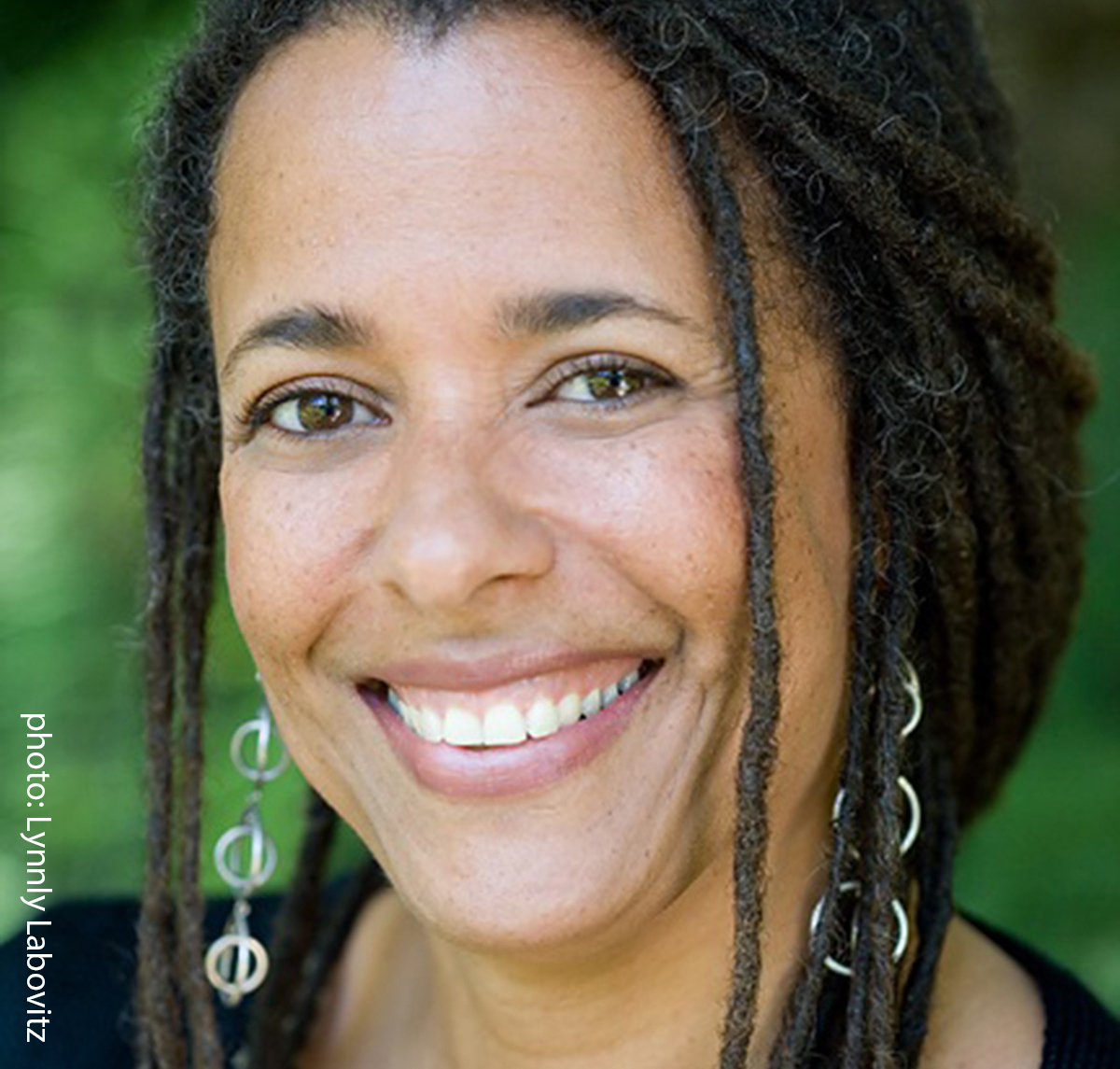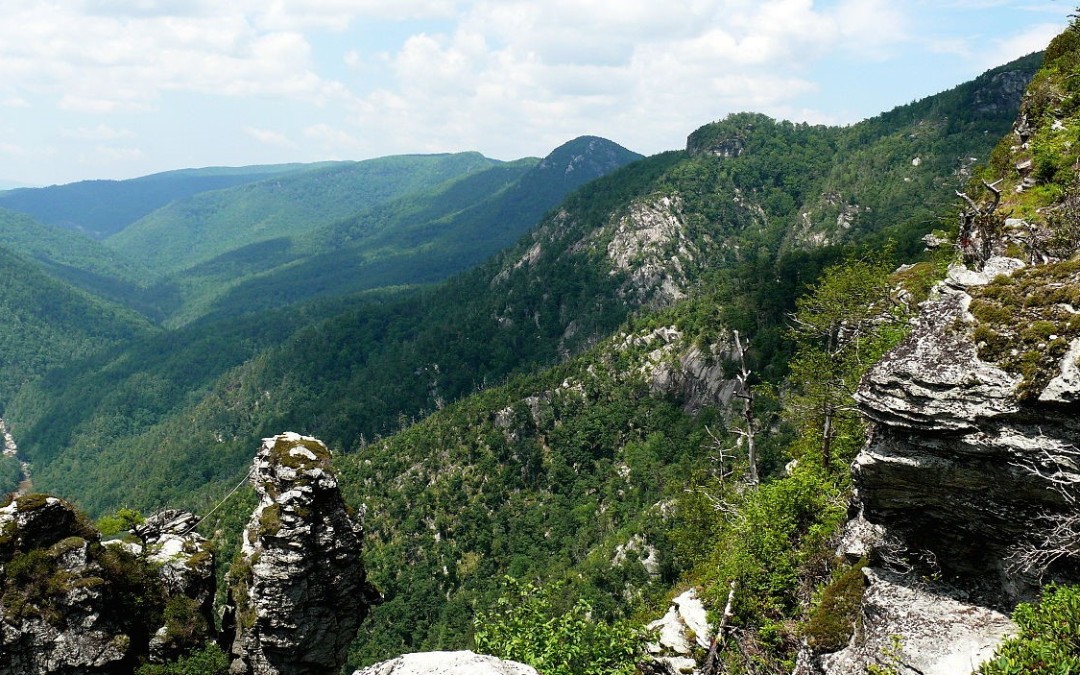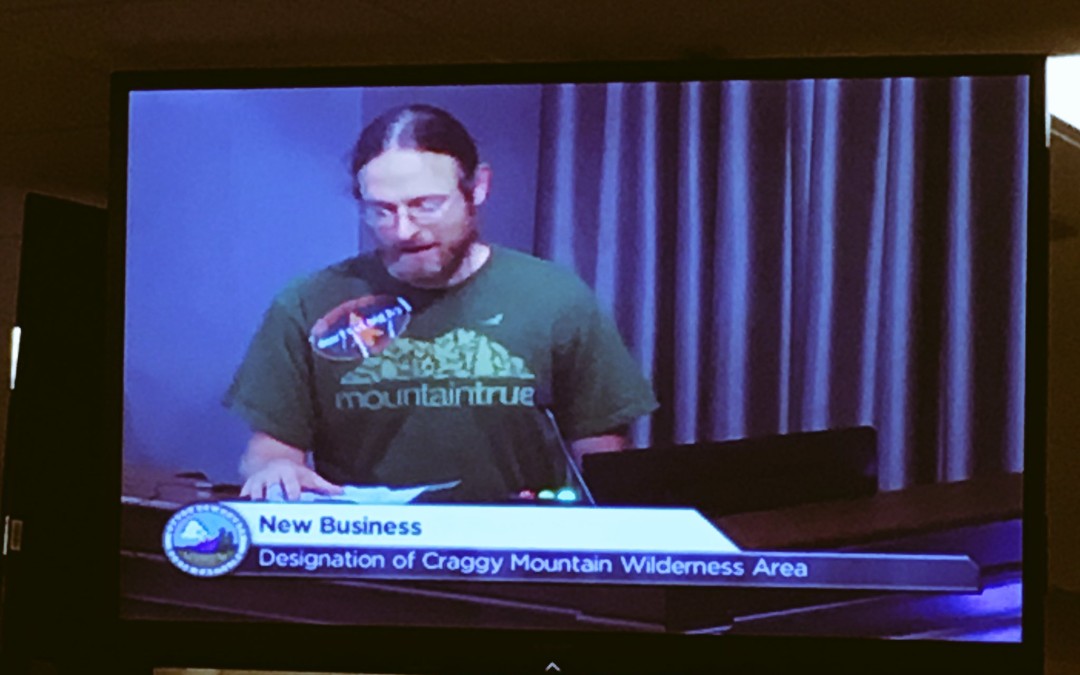
Buncombe County Passes Wilderness Resolution for Big Ivy and Craggy Wilderness with Unanimous Vote
Buncombe County Passes Wilderness Resolution for Big Ivy and Craggy Wilderness with Unanimous Vote
On Tuesday, September 20, the Buncombe County Commissioners voted unanimously for resolution asking Congress to designate expanded wilderness for the Big Ivy area of the Pisgah National Forest. MountainTrue’s Josh Kelly was in attendance along with more than 150 people showing their support for wilderness protections.

Craggy Wilderness Study Area was created by Congress in 1975 as a 2,572 acre area below Craggy Pinnacle. In the current forest plan revision, the Forest Service identified a 10,652 acre area that could be suitable as Wilderness, but has proposed only 3,450 areas to be recommended to Congress as Wilderness.
Friends of Big Ivy, a local citizens group, along with MountainTrue and more than 40 other organizations and businesses (MOU signers) have proposed an area of approximately 7,900 acres be protected as Craggy Mountain Wilderness. The resolution by Buncombe County called on the Forest Service to recommend the entire 7,900 acre area as Wilderness.
This would be the first and only wilderness in Buncombe County and will not affect the trail network and will not change any current uses of Big Ivy. Mountain biking, horseback riding, hunting, and fishing will all continue to be allowed. The wilderness boundaries have been carefully drawn so that all mountain bike trails are outside the recommended area. No roads or trails will be closed to anyone. The wilderness recommendation will simply prohibit logging and development in trail-less, high-elevation areas of Big Ivy where most of the old-growth forests are located. Wilderness designation will best protect historical uses like hunting, fishing, camping and swimming and the unique ecological features of this special place. We want to keep Big Ivy just the way it is – wild, scenic, adventurous, and uncut.
On September 20th, more than 30 people spoke in favor of the resolution over a two hour period, and no one in attendance was opposed. Biology professors from Mars Hill College, UNC-Asheville, and Warren Wilson all spoke in favor of the resolution, as did a former Forest Service employee, Barnardsville residents, multi-generational families, children, and representatives of local environmental groups. The commissioners unanimously approved the resolution, noting that the area was already wilderness and hadn’t been designated yet. Commissioner Belcher noted that his faith led him to vote yes as a way of affirming the greatness of God’s creation. Commission Chair David Gantt said, “I think we do wonderful things when we look ahead and do things for future generations.”
There are over 2 million acres of National Forests throughout Western North Carolina and Eastern Tennessee, and these public lands are an incredible resource and economic driver for the region. Every 10-20 years, the Nantahala-Pisgah National Forest is required to have a new management plan that outlines the direction of the Forest. The Nantahala-Pisgah National Forest is currently revising its plan and as a part of our commitment to resilient forests, MountainTrue helps shape this plan to ensure that we are protecting our forests and our communities. To learn more about this work, read about our Public Lands programs.



